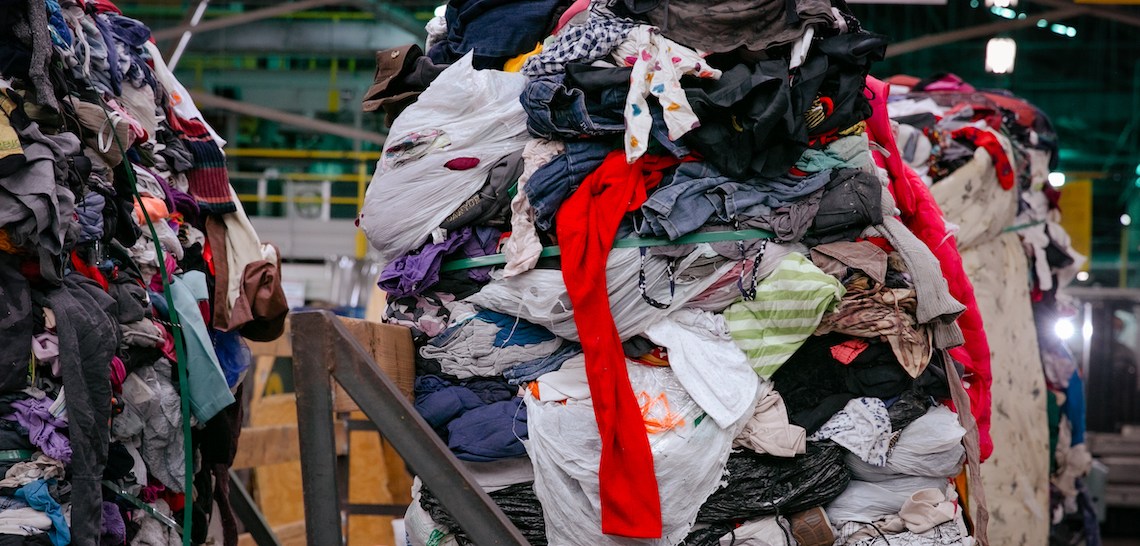For the last two years, sustainability-minded T-shirt brand For Days has offered a take-back bag. It’s a bag that customers can add to their order, fill with any clothes they wish to be recycled and send it away to For Days for store credit.
It’s been a successful tool for For Days to help divert clothing from ending up in landfills and has turned into a profitable revenue driver on its own. Now, the company is expanding its take-back bag outside of its own brand for the first time.
On Monday, DTC sock brand Bombas began offering For Days take-back bags. Customers can order the take-back bag from Bombas for $10 by adding it to an existing order or ordering it on its own. Customers then fill it with any old clothes they want to recycle, send it back to Bombas where they will be recycled and receive $10 worth of store credit to use at Bombas.
Kristy Caylor, co-founder and CEO of For Days, said this is the first partnership of what she hopes will be many more. More than 10 other brands are slated to adopt For Days’ take-back bags throughout the rest of the year. According to Caylor, the take-back business is profitable for For Days and stands on its own. Caylor said programs like this shine at scale and take out some of the pain points from recycling. Individual takeback programs are a drop in the bucket compared to what brands can do when they join together.
“If another brand wants to offer a take-back program, the infrastructure that’s required, the proficiency in sorting things and the relationship with the recyclers are all big barriers,” Caylor said. She noted that for brands looking to outsource recycling, there are few options.
Caylor said the key to keeping the take-back business self-sustaining has been a careful balancing of bag size, unit pricing and shipping costs. But that also means For Days can’t just port the exact same model to other brands. The Bombas version of the For Days take-back bag isn’t just rebranded with Bombas imagery. It’s also a smaller size to account for the fact that the brand focuses on socks. Bombas buys the bags wholesale from For Days and pays a maintenance and service fee to For Days to handle all the back-end reception. Caylor said the same arrangement will hold for future partners, as well. Caylor declined to disclose how much the fee was, noting that it will be different for each brand based on their size and scale.
“This partnership is an important step in helping us and our customers to minimize waste; For Days makes this take-back program easy and impactful,” said Chloe Thompson, svp of strategy at Bombas.
Since the introduction of its take-back bag, Caylor said For Days has saved more than 1 million pounds of clothing from landfills or incinerators by redirecting it to recycling, downcycling and resale partners. Around 50% of retaken clothing is resold and 45% is recycled. According to Caylor, the last 5% is unusable even for recycling purposes. She said the company’s received things like umbrellas and VHS tapes in the bag that make up this last 5%.
Caylor emphasized that the point of the take-back program is to make recycling easy for both brands and customers.
“We think a lot about behavioral shifts,” Caylor said. “Our job as a business is to make recycling easy and habitual and reward people for making it a habit. How do we incentivize the right behavior? People throw things away instead of recycling them because it’s easier, so if we can make a small shift to make recycling easier, it can build that habit.”




